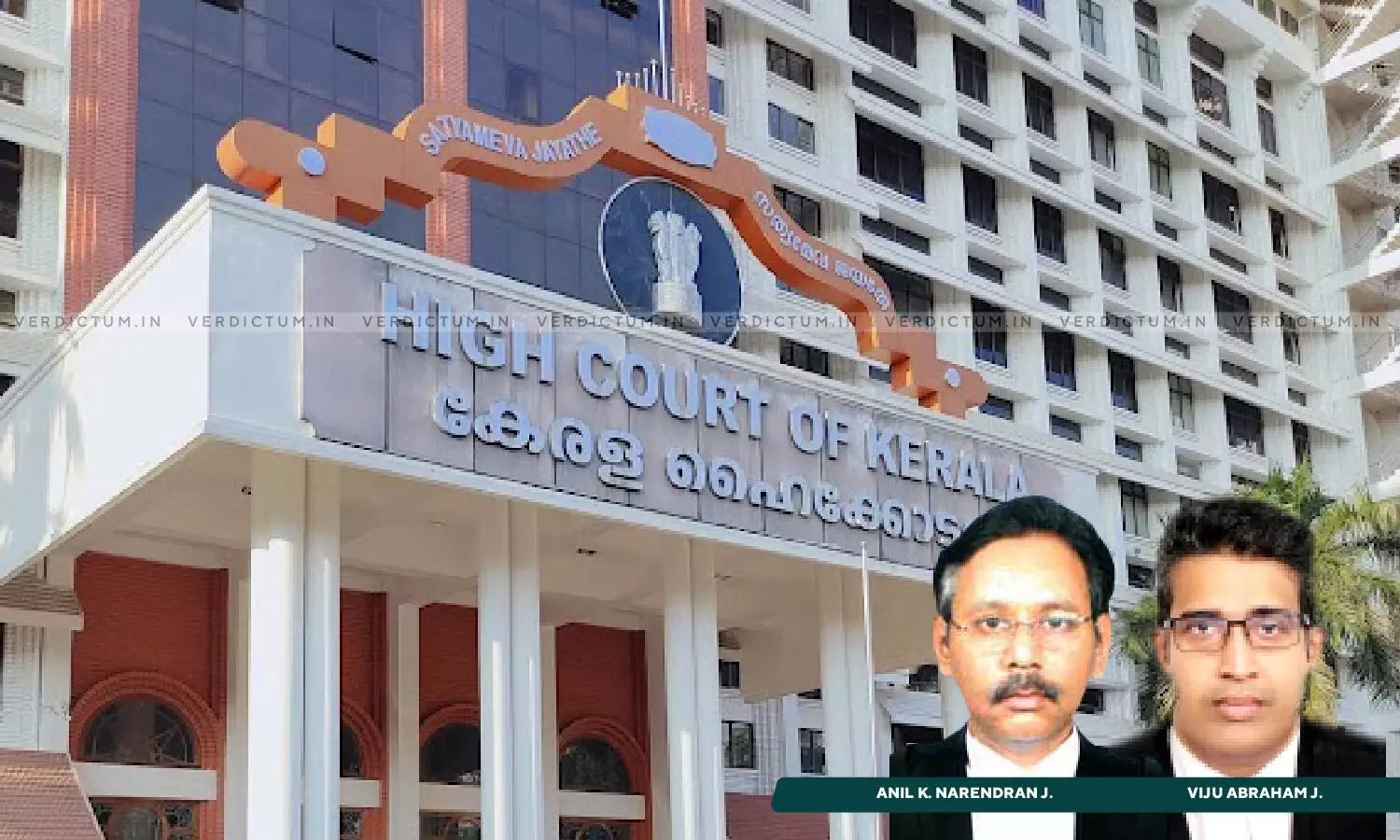
Order VIII Rule 5 CPC | Judgment And Decree In Favour Of Plaintiff Is Not Automatic On Failure Of Defendant To Put His Defence: Kerala HC
 |
|The Kerala High Court observed that as per Order VIII Rule 5 of the Code of Civil Procedure (CPC), a judgment and decree in favour of the plaintiff is not automatic on the failure of the defendant to put his defence.
The Court observed thus in a matrimonial appeal filed by a man under Section 19(1) of the Family Courts Act, 1984 against the judgment and decree of the Family Court.
A Division Bench of Justice Anil K. Narendran and Justice Viju Abraham said, “A reading of the provisions under Order VIII Rule 5 of the Code of Civil Procedure would show that a judgment and decree in favour of the plaintiff is not automatic on the failure of the defendant to put his defence. The court can grant a decree in favour of the plaintiff only upon consideration of the case of the plaintiff, including appreciation of the pleadings and evidence on record. When the defendant has denied the averments made by the plaintiff in each and every paragraph of the plaint, even if there is no denial of any particular fact, it cannot be said that the defendant had admitted the same.”
Advocate A.K. Alex appeared for the appellants while Advocate Jacob P. Alex appeared for the respondent.
In this case, the appellants were the respondents in a case before the Family Court, Pathanamthitta, in which an original petition was filed by the respondent herein-petitioner, the wife of the 1st appellant, for realisation of 13.2 sovereigns of gold ornaments or its present value from the appellants and also for compensation. On receipt of notice, the appellants entered appearance and filed objection denying the allegations contained in the original petition and disputing the claims made therein. After considering the pleadings and evidence on record, the Family Court arrived at a conclusion that the respondent is entitled to get a decree for recovery of 13.2 sovereigns of gold ornaments or its value from the appellants and also Rs. 2,00,000/- from the husband as compensation.
Accordingly, by the judgment and decree, the Family Court allowed in part the aforesaid original petition and directed the appellants to give 13.2 sovereigns of gold ornaments or its present value to the respondent-wife within 60 days from the date of that judgment. The husband was directed to pay a sum of Rs. 2,00,000/- to the wife as compensation and it was ordered that the decretal amount shall have a charge on the property attached and that the respondent will be entitled to get her cost from the appellants. Challenging the judgment and decree of the Family Court, the appellants were, therefore, before the High Court.
The High Court in the above regard noted, “The Family Court, after analysing the pleadings and evidence on record and taking note of the provisions under Order VIII Rule 5 of the Code of Civil Procedure, arrived at a conclusion that the respondent herein has succeeded in her claim for return of 13.2 sovereign of gold ornaments. The said reasoning of the Family Court cannot be said to be either perverse or patently illegal, in view of the provisions contained in Section 14 of the Family Courts Act and the law laid down in Shinu P.K. [2013 (3) KHC 735], Rajesh P.P. [2021 (4) KHC 242] and Kesari Hanuman Goud S. [(2013) 12 SCC 64].”
The Court further observed that even though the wife averred cruelty, both physical and mental, suffered by her from her husband, she did not adduce any supportive evidence, and when asked during cross-examination, whether she lodged any complaint for the physical assault from the side of the husband, she stated that since he begged for pardon, she did not make any such complaint.
“As already noticed, the respondents have not chosen to mount the box. After considering the oral testimony of PW1 and RW1, the Family Court found that the 1st respondent brought PW1 from Hyderabad and she was sent with his parents to his house. When the parents of the petitioner could not arrange more gold ornaments, as demanded by the 1st respondent, she was sent back to her home after taking back the thali chain”, also said the Court.
The Court added that the wife suffered much mental and physical cruelty entitling her to get compensation from her husband and hence, the finding of the Family Court cannot be said to be either perverse or patently illegal, warranting interference in the appeal.
“Such a claim made in the original petition is maintainable before the Family Court in view of the law laid down in Juveria Abdul Majid Patni [(2014) 10 SCC 736] and Danial Latifi [(2001) 7 SCC 740]”, concluded the Court.
Accordingly, the High Court dismissed the appeal.
Cause Title- ABC v. XYZ (Neutral Citation: 2023/KER/83086)